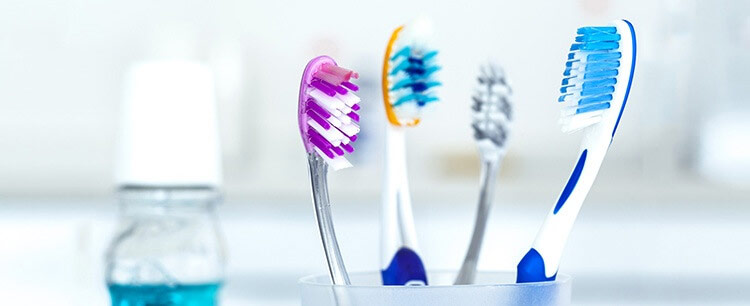Proper dental care is an essential part of aging healthfully. As we grow older, our oral health has an even bigger impact on our overall well-being than in past years, so maintaining a dental hygiene routine is important.
While brushing and flossing routines remain central, some additional steps are important for seniors' dental health. People with dementia, severe arthritis, or mobility struggles need assistance with this crucial habit, so make sure your aging loved ones have the help they need. With these things in mind, you can prevent future problems and ensure the best oral health possible.
Tips for Improving Senior Dental Care During Aging
- See your dentist at least every six months. Routine cleanings help prevent decay and cavities, and also allow your dentist to detect gum disease in the early, reversible stages.
- Let your dentist know of any health conditions or new medications that may lead to oral problems. Tell them right away if you ever experience increased sensitivity.
- Quit smoking. In addition to the risk of lung cancer, smoking can lead to gum disease, tooth decay, and tooth loss.
- Brush twice a day with a soft-bristled toothbrush and fluoride-containing toothpaste, and floss once a day.
- If you wear dentures, remember to clean them daily. Remove them for at least four hours a day, preferably at night.
- Eat whole foods and avoid sugar. Processed, high-sugar foods do not support oral health in any way, but teeth and gums thrive on a high-fiber diet.
Medical Conditions Connected to Oral Health
Many of the health problems that concern seniors are linked to oral health. A strong dental hygiene routine doesn't just support your teeth and gums; here are a few of the ways excellent dental care is connected to overall health:
Cardiovascular Disease
Oral health is closely connected with our heart health. Periodontitis allows bacteria below the gum line, contributing to the spread of toxins through our body. Studies have found that severe periodontal disease is associated with higher risks of stroke and double the risk of fatal heart disease, and in some cases, tooth infections can cause infection in the heart's lining or valves. In the absence of gum disease, fewer bacteria are present in the cardiovascular system. While researchers don't fully understand the connection between oral and heart conditions, it's clear that good dental hygiene supports the cardiovascular system.
Pneumonia and Respiratory Problems
Poor oral health can contribute to pneumonia. In fact, some studies have shown a higher mortality rate in pneumonia patients who also have more gum problems. When bacteria from the mouth is inhaled into the lungs, an infection may occur in the respiratory system and existing medical conditions can become much worse. Regular brushing and cleaning helps remove dangerous oral bacteria and helps prevent internal infection.
Diabetes
Oral health is essential for people with diabetes. Gum disease inhibits the use of insulin, and high blood sugar leads to gum infections. People whose glucose is poorly managed suffer from gum disease much more often than those whose glucose is well-controlled, so stay mindful of your blood glucose levels.
These are just a few of the ways doctors and scientists have demonstrated the essential role played by our oral health. With education and energy put toward dental hygiene, you or your aging loved ones can enjoy a healthier, more comfortable daily life.





